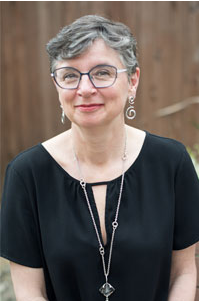by Lisa L. Moore and Karma R. Chávez
We wrote this introduction before the rebellions in defense of Black lives began. We believe the way we are introducing this magazine remains important–after all, the rebellions happen in the context not only of state violence at the hands of law enforcement, but also state violence in the form of a negligent response to the COVID-19 pandemic and a lack of universal health care. All of these concerns are queer and trans issues. We stand in solidarity with our Black colleagues, and all Black people. We will be devoting our September issue to Black issues. Until then, stay safe out there.
After the Spring 2020 semester made that sharp swerve online, we here at LGBTQ Studies began checking in on our students. Some remained in their Austin apartments, but many had returned to where they grew up. The closing of university housing, the loss of a job that had paid the rent, younger siblings suddenly home from school in need of childcare: the coronavirus pandemic cut short the lives LGBTQ students had been building for themselves away from home.
LGBTQ youth are experiencing a health care crisis inside a health care crisis. Recent research suggests that the disproportionate rates of anxiety, depression, and suicidality already experienced by LGBTQ people aged 18-25 are being exacerbated for college students who must return home. According to The Trevor Project, one third of LGBTQ youth have disclosed their identities to their families and experienced support and acceptance. One third have not disclosed. And one third have either come out or been outed, and experienced violence, abuse or rejection. For many, going back to where they grew up is not a return “home” but a forceful ejection from the new queer kinship networks they had been painstakingly building as young adults. Reports of anti-Asian bias incidents, police shootings of young black adults, COVID outbreaks among the incarcerated and those in long-term care, the heightened impact of COVID on communities of color, and increased homelessness add to the burdens of many.
We heard from students who had to access their newly-online LGBTQ Studies classes on their phones under the bedcovers, hiding in the garage, or with video and audio muted so that family members would not overhear the discussion or see their queer classmates on a screen. One student participated in her scheduled Zoom class from the fast-food drive-up window in her hometown, where she was working now that a parent had been laid off. Another student participated while home-schooling his six-year-old.
But our students also told us about the innovative life hacks they were pulling together to stay in touch with their queer communities and combat loneliness. A student in LGBTQ Literature told us, “I’ve been getting a lift from ‘queerantine culture’—my friends and I are experimenting with haircuts or dying our hair, or creating outfits from the random things in my closet left over from high school, since I came home with only about a week’s worth of clothes.” Said another, “About a month before we started social distancing, I stopped drinking. It’s been really helpful during this time to be doing it sober.” Another stayed in touch with friends scattered across the state the old-fashioned way: “I feel so much pressure to engage in social media because everyone knows we have ‘nothing else to do.’ But it makes me so anxious. So I’ve enjoyed writing and mailing letters to my friends. Plus it supports the post office! And making playlists for people, so we have something lighthearted to talk about.”
Queer creativity and resilience in the face of a pandemic is an important part of our history. At the beginning of the AIDS crisis in the 1980s, as HIV began to devastate gay communities, queer people innovated responses that made lasting contributions to American culture. In the face of staggeringly cruel indifference to queer death on the part of government, the medical establishment, and the public, grassroots organizations like Gay Men’s Health Crisis, ACT-UP, and God’s Love We Deliver emerged. These groups, many of which continue today, are much like the mutual aid societies that have been formed recently to share “solidarity not charity” among communities affected by COVID, domestic violence, racism, homophobia, transphobia, homelessness, incarceration, and poverty.
When we dreamed up QT Voices at a meeting of the LGBTQ Studies Advisory Council in October 2019, we did not imagine launching our magazine into the middle of a pandemic. What we did imagine, though, was tapping into these queer histories and capacities. With this first issue, we hope you will join us in creating a space for mourning and militancy, a space to unleash our wild tongues, and one to create our own litany for survival.
We’re launching this inaugural issue in June, when since 1970, Gay Pride Parades have commemorated the Stonewall Rebellion. But Austin likes to keep it weird, so Pride here has always been held in August. More recently, Austin activists critical of corporate and assimilationist versions of Gay Pride took over the June spot to create Queerbomb, a grassroots, activist-oriented parade with “radically inclusive” politics.
In the same DIY spirit is another iconic Austin queer gathering, OUTsider Fest, which takes place in February. LGBTQ Studies is a proud sponsor of OUTsider, and in this issue you’ll find a cluster of related content about the 2020 festival. Don’t miss Karma Chávez interviewing OUTsider Board Member and LGBTQ Studies Faculty Affiliate Laura Gutiérrez on our podcast, Audio QT. Curran Nault, the founder of OUTsider and also an LGBTQ Studies Faculty Affiliate, has a great essay in this issue about how the research for his book, Queercore: Queer Punk Media Subculture, led to his desire to create a queer punk festival in Austin. And James Gambrillo, who is joining the UT music faculty in Fall 2020, reviews Queercore in this issue. We also have fun features like the short video “Ask a QT,” a “QT Deep Dive” into LGBTQ history, spotlights on our LGBTQ Studies students who interned at the Texas Legislature, the Kind Clinic, and OutYouth, more reviews, and an FAQ(t!) section.
Like many things in the time of pandemic, we are not entirely sure how QT Voices will look going forward. We are still very much experimenting. The one thing we do know is that we can’t wait to feature more queer and trans voices from UT, Austin, and the state of Texas. As is often the way with our LGBTQ communities, we hope QT Voices will combine campy pleasures with hard-hitting political analysis and everything in between. So, take a look, let us know what you think, and reach out if you’d like to contribute.
We wish you a safe and healthy summer in queerantine. We hope to share physical space with you very soon.

Lisa L. Moore (she/her) is Archibald A. Hill Professor of English, Professor of Women’s and Gender Studies, and Director of the LGBTQ Studies Program at The University of Texas at Austin.

Karma R. Chávez (she/her) is Associate Professor and Chair of the Department of Mexican American and Latina/o Studies, and a member of the LGBTQ Studies Advisory Council at The University of Texas at Austin.
